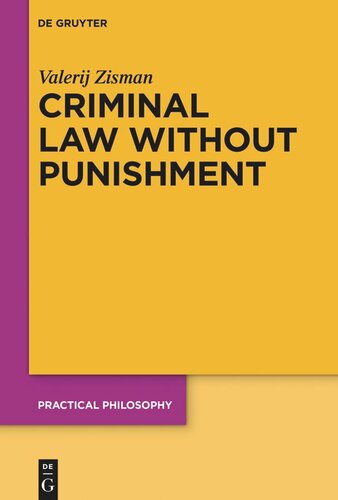

Most ebook files are in PDF format, so you can easily read them using various software such as Foxit Reader or directly on the Google Chrome browser.
Some ebook files are released by publishers in other formats such as .awz, .mobi, .epub, .fb2, etc. You may need to install specific software to read these formats on mobile/PC, such as Calibre.
Please read the tutorial at this link: https://ebookbell.com/faq
We offer FREE conversion to the popular formats you request; however, this may take some time. Therefore, right after payment, please email us, and we will try to provide the service as quickly as possible.
For some exceptional file formats or broken links (if any), please refrain from opening any disputes. Instead, email us first, and we will try to assist within a maximum of 6 hours.
EbookBell Team

0.0
0 reviewsHow can criminal punishment be morally justified? Zisman addresses this classical question in legal philosophy. He provides two maybe surprising answers to the question. First, as for a methodological claim, it argues that this question cannot be answered by philosophers and legal scholars alone. Rather, we need to take into account research from social psychology, economy, anthropology, and so on in order to properly analyze the arguments in defense of criminal punishment. Second, the book argues that when such research is properly accounted for, none of the current attempts to justify criminal punishment succeed. But that does not imply that the state should do nothing about criminal wrongdoing. Rather, the arguments that were supposed to justify criminal punishment actually speak in favor of an alternative approach to criminal law: restitution to the victim and restorative justice. That is to say, the state should coerce offenders to provide restitution for the harm inflicted on victims, and whenever possible restorative approaches should be taken to address criminal wrongdoing.